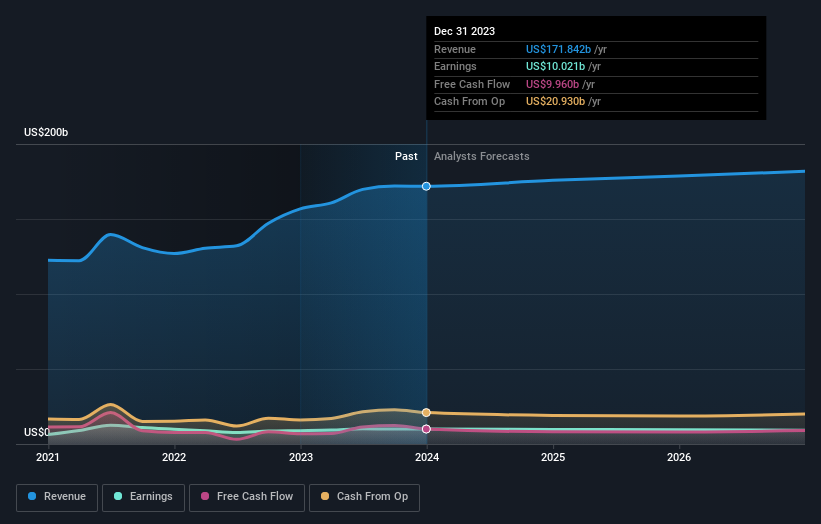
Today we're going to take a look at the well-established General Motors Company (NYSE:GM). The company's stock saw a significant share price rise of 23% in the past couple of months on the NYSE. The recent jump in the share price has meant that the company is trading at close to its 52-week high. With many analysts covering the large-cap stock, we may expect any price-sensitive announcements have already been factored into the stock’s share price. However, what if the stock is still a bargain? Let’s examine General Motors’s valuation and outlook in more detail to determine if there’s still a bargain opportunity.
Check out our latest analysis for General Motors
Is General Motors Still Cheap?
According to our valuation model, General Motors seems to be fairly priced at around 0.57% above our intrinsic value, which means if you buy General Motors today, you’d be paying a relatively reasonable price for it. And if you believe the company’s true value is $40.03, there’s only an insignificant downside when the price falls to its real value. Although, there may be an opportunity to buy in the future. This is because General Motors’s beta (a measure of share price volatility) is high, meaning its price movements will be exaggerated relative to the rest of the market. If the market is bearish, the company’s shares will likely fall by more than the rest of the market, providing a prime buying opportunity.
What kind of growth will General Motors generate?

Future outlook is an important aspect when you’re looking at buying a stock, especially if you are an investor looking for growth in your portfolio. Buying a great company with a robust outlook at a cheap price is always a good investment, so let’s also take a look at the company's future expectations. However, with a negative profit growth of -8.5% expected over the next couple of years, near-term growth certainly doesn’t appear to be a driver for a buy decision for General Motors. This certainty tips the risk-return scale towards higher risk.
What This Means For You
Are you a shareholder? Currently, GM appears to be trading around its fair value, but given the uncertainty from negative returns in the future, this could be the right time to reduce the risk in your portfolio. Is your current exposure to the stock optimal for your total portfolio? And is the opportunity cost of holding a negative-outlook stock too high? Before you make a decision on the stock, take a look at whether its fundamentals have changed.
Are you a potential investor? If you’ve been keeping tabs on GM for a while, now may not be the most optimal time to buy, given it is trading around its fair value. The price seems to be trading at fair value, which means there’s less benefit from mispricing. Furthermore, the negative growth outlook increases the risk of holding the stock. However, there are also other important factors we haven’t considered today, which can help crystalize your views on GM should the price fluctuate below its true value.
If you'd like to know more about General Motors as a business, it's important to be aware of any risks it's facing. To help with this, we've discovered 3 warning signs (2 make us uncomfortable!) that you ought to be aware of before buying any shares in General Motors.
If you are no longer interested in General Motors, you can use our free platform to see our list of over 50 other stocks with a high growth potential.
New: Manage All Your Stock Portfolios in One Place
We've created the ultimate portfolio companion for stock investors, and it's free.
• Connect an unlimited number of Portfolios and see your total in one currency
• Be alerted to new Warning Signs or Risks via email or mobile
• Track the Fair Value of your stocks
Have feedback on this article? Concerned about the content? Get in touch with us directly. Alternatively, email editorial-team (at) simplywallst.com.
This article by Simply Wall St is general in nature. We provide commentary based on historical data and analyst forecasts only using an unbiased methodology and our articles are not intended to be financial advice. It does not constitute a recommendation to buy or sell any stock, and does not take account of your objectives, or your financial situation. We aim to bring you long-term focused analysis driven by fundamental data. Note that our analysis may not factor in the latest price-sensitive company announcements or qualitative material. Simply Wall St has no position in any stocks mentioned.
About NYSE:GM
General Motors
Designs, builds, and sells trucks, crossovers, cars, and automobile parts worldwide.
Undervalued with mediocre balance sheet.
Similar Companies
Market Insights
Community Narratives



